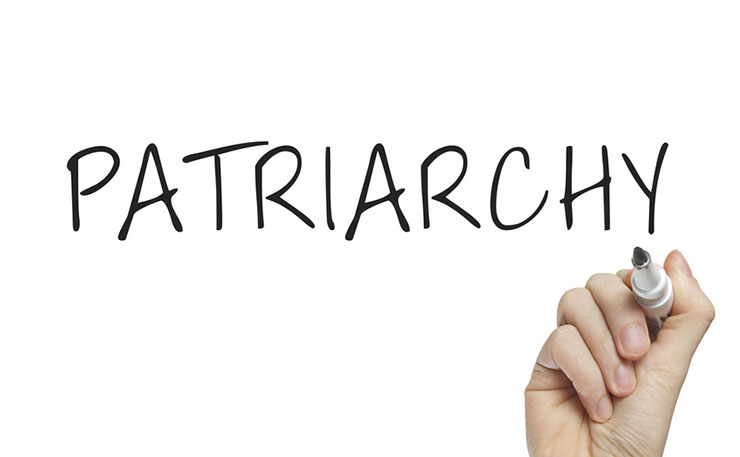New Matilda has been swamped with submissions about yesterday’s article on Clementine Ford. This is the first of a series we’ll publish over the next few days, and is written by Lifted Brow co-editor Ellena Savage.
I’m not here to fight. I don’t want to ruin my hair, I just did my nails, and, oh yeah, I don’t want anyone to think I’m “doing more harm than good”.
But I’m also on the rag, so I guess I can’t help myself.
Get some Vaseline. Let’s fight.
Jack Kilbride, a young writer from the University of Melbourne whose name Freud would have something to say about, wrote something about how Clementine Ford’s approach to feminism (that is, calling out sexism, and robustly criticising the attitudes that make violence against women possible – otherwise known as, um, feminism) is alienating extreme misogynists.
Kilbride writes: “The mission of feminism is to make these men [who harass and assault women]change and starting fights with them is only making that mission harder. We need a way to bring them in and luckily we may already have one.”
The strategy Kilbride suggests is respectability. If you’re familiar with the term ‘respectability’, you’ll know I borrowed it from American race and gender politics (namely the black, female Christian thinker Evelyn Brooks Higginbotham), because there’s nothing an activist can learn that hasn’t been learned elsewhere in the history of struggle.
Kilbride suggests that if feminists want to change anything at all, they need to be inclusive to their most dangerous and violent critics. Because Kilbride is the kind of committed feminist who has clearly never read anything written in the entire field of feminism, he just refers to Emma Watson’s UN speech, the one where she invited men to become feminists. He doesn’t mention that immediately after she made her speech that she was harassed online, and threatened with leaks of nude pictures.
The idea of respectability politics is two-fold: the first is that the dominant social group offers an invitation to the table of power to outsiders, but only if they stop behaving disruptively. The second fold is that this invitation works to ‘other’ outsiders: their looks, their speech, and their manners are all wrong, and they are burdened trying to ‘correct’ themselves. And then they start telling their communities to change their behaviour, too.
The problem with respectability politics is that it does not work. The invitation – you can share our power if you look, talk, or act more like us – is not genuine, because people who have power have no interest in giving it up. It’s a divisive strategy that singularly undermines the identities and cultures of underrepresented people, and pits them against one another rather than against the dominant group.
A few genocides in recent history have proven that the promise is never kept. It doesn’t matter how well you can assimilate, if the ideology determining the logic for your oppression is maintained, you will never be given a real place at the table.
So ladies, you can be a man and talk sensibly at the grown-ups table, but it won’t really change a thing. You’ll just be a scab.
“There are men, like myself,” writes Kilbride, “who are feminists and believers that true equality for women is paramount to our future.” Unfortunately, though, “Then there are the other men.” They are responsible for all misogyny ever.

There is a passage in Jack Halberstam’s Female Masculinity that I resort to time and time again, because when I first read it, the world as I’d lived in it fell into place. Halberstam writes that masculinity “becomes legible as masculinity where and when it leaves the white male middle-class body. Arguments about excessive masculinity tend to focus on black bodies (male and female), latino/a bodies, or working-class bodies.”
The way I grew up, as many others do in mobile lower-middle class families, I moved through many different worlds. Poor, migrant, artist, rich former-migrant, white-bread middle-class, upper middle-class, tertiary educated, private-schooled, home-schooled, unschooled, newly rich… You know, the whole spectrum. The thing I gleaned from learning how to ‘appear normal’ in these conflicting worlds is that across every social stratum there is a fairly significant portion of men who are interested in making women feel threatened. That’s just the truth. It’s only that this desire to dominate women is expressed differently in different places.
Among the lower classes, in the places I lived as a teenager, for example, men who want to threaten women do it by following you around on the street, by shouting abuse at you, by flashing you, masturbating at you, going home and bashing you, etc. (which is not to say violence doesn’t occur in the upper classes, but bear with me…) This kind of behaviour is viscerally scary, and it’s illegal. In many cases, it’s the kind of behaviour you could report to the police if you felt supported enough.
These behaviours are perpetrated by Kilbride’s “other men”.
In the upper-classes, though, the behaviour that threatens women is largely invisible. It’s not even illegal – it’s just normal. The nice white boys who do arts degrees at Melbourne Uni – who are both men and feminists! – demean you simply by not texting after they sleep with you (even though you paid for the cab), or by not asking you what you’re working on even though they know you’re an artist and you listen to them crap on about their work all the time, or they only ask you to write for their magazines when they need someone to cover some ‘women’s issue’, or they give themselves ‘boss’ job titles on projects you’re sharing the labour on, or they take credit for your insights, or they tell you stories about their crazy exes (it could be you!), or they only talk to you about their girl problems because to them you’re a free counsellor, or they devise entire undergraduate courses that do not include female thinkers at all. Or, they attend their friend’s gender studies lecture one time and then spend the rest of their lives schooling you on feminism.
These are high social strata problems. And it is in this liberal, progressive slice of the world that I believe misogyny’s roots are grounded. At least with the plebs back home you can see their violence, and when it’s visible you can try to navigate it.
What I have listed here, to a greater or lesser extent, are behaviours that every male friend of mine has at some point been guilty of. It’s just the culture. And, to be fair, in every situation there is a flux of power: we are all at once powerful and powerless, and sometimes some women seize some of their power to say no, I will not tolerate this any more. Sometimes they do this by opting out of social environments where they know they’ll have to encounter consistent casual sexism (see also: women’s lack of participation in ‘masculine’ professions). Sometimes they do this by arming themselves against it with rage.
So why are cute, nice, educated guys chauvanists? What, with all their female friends and access to great troves of female thought from all social strata, could they possibly see in old-fashioned woman-hating?
Like Kilbride, they simply don’t know that they are patriarchs, because they are the patriarchy. And the patriarchy is invisible.
Or maybe he’s not the patriarch, he’s a very naughty boy.
Gloria Steinem wrote:
Since most men have only experienced female power in their childhoods, they associate it with a time when they themselves were powerless. This will continue as long as children are raised almost totally by women, and rarely see women in authority outside the home.
When women express their frustrations in a way that is proportional to their subjugation – which is to say socially justified – these gorgeous, man-bunned feminist men just hear the wrath of their inconsolable mothers the time they shat in someone’s shoe – a frightful thing, when you’re a child.
I’d like to borrow another criticism from American race politics. Basically: if as a woman I am to spend my life burdened with sexism, I’d rather the perpetrators be upfront about it. The wolf in sheep’s clothing has got to go.
The current focus on the masculine bodies which are culpable for violence against women are usually coded as working-class (including MRAs), migrant or POC (often coded as Muslim or Aboriginal). The violence we talk about has to be (for fairly sound reasons, given the origins of our legal system) demonstrable. But there’s a lot swept under the rug when a classed or racialized other is responsible for visible violence. What about the invisible attitudes that assures that men have dominion over women?
In mass media, the current feminist focus on Men’s Rights Activists disturbs me not because my sympathies lie with MRAs, but because MRA logic is the extreme outcome of mainstream culture. This focus on ‘other men’ exemplified by Kilbride disturbs me because it sidelines all men’s complicity in sexist culture.
MRAs I don’t want to get into too much though, because I think that the post-Marxist status of working-class men as low-level, expendable cogs in the machinery of capitalism is Not A Good Thing; that while it appals me, I can see that disenfranchised men turning their rage against women is basically inevitable when the highest echelons of our society are demonstrably sexist. I can also see that it’s useful for MRAs to exist because it unburdens the (upper) middle classes from the effects of class warfare. If dispossessed, expendable men turn on women, who are also generally expendable, they’re not doing any harm to the economic regime that produced them in the first place.
Men’s violence against women costs around $15 billion to the Australian economy every year, but the burden of that cost is taken up by women.
I don’t have a conclusion. I don’t have a way to summarise my antipathy towards safe, bored men who are scared of being shouted at. Patriarchy isn’t other men: it’s you.
Donate To New Matilda
New Matilda is a small, independent media outlet. We survive through reader contributions, and never losing a lawsuit. If you got something from this article, giving something back helps us to continue speaking truth to power. Every little bit counts.





